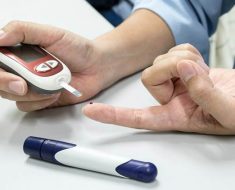NEW YORK (Reuters Health) – Implementing vaccine services in inflammatory bowel disease (IBD) centers is “critical” to improving immunization rates, researchers say.
“Vaccinating patients with IBD has been recognized to be impactful in preventing infections in the setting of immunosuppression and is a responsibility best shouldered by gastroenterologists to reduce vaccine misperceptions and optimize immunization rates,” Dr. Shubha Bhat of the Cleveland Clinic, Ohio, told Reuters Health by email. “This responsibility has been further heightened with the emergence of COVID-19.”
“Given that there are many steps in implementing a successful vaccination program, a vaccine champion is critical to oversee this process,” said Dr. Bhat, who was at Boston Medical Center at the time of the study. “This would ensure that one individual is taking ownership of the process and can serve as a liaison to other departments, such as pharmacy and billing, for essential coordination efforts.”
As reported in Inflammatory Bowel Diseases, Dr. Bhat and colleagues emailed surveys to 75 IBD centers across the US in September and October 2020. About half responded: 52% were university centers; 23%, part of health systems; and 14%, private.
Approximately 36% of respondents said their centers can’t give vaccines for one or more of the following reasons:
– inability to stock vaccines because of cost (25%);
– inadequate storage (14%);
– lack of staff to administer vaccines (25%);
– reimbursement concerns (19%).
Among centers with vaccines, the types stocked varied significantly – e.g., influenza (60%); hepatitis A/B combination (45%); hepatitis A alone (29%); TDP (21%); HPV (5%).
General concerns about providing vaccines included inadequate reimbursement (23%); too little time to obtain a vaccine history (13%); and inadequate time, supply, and resources for administration (13%).
Centers not providing vaccines used other ways to promote vaccine uptake, including referring patients to primary care (31%); giving prescriptions for administration at pharmacies (28%); or leveraging electronic health records to remind patients (32%) or providers (46%) about immunizations.
Eighty-five percent of providers said they would recommend COVID-19 vaccination to their patients, but only 27% said it would likely be stocked in their centers.
The authors concluded, “Implementing and optimizing vaccination services within IBD centers can be a model for other practices and is critical to improving immunization rates now and beyond the COVID-19 pandemic.”
Dr. Bhat added, “Gastroenterologists should ensure that patients are up-to-date on all vaccines, and review the current recommendation that patients with IBD should obtain any COVID-19 vaccine as soon as it is available to them.”
Dr. Marla Dubinsky, Co-Director, Susan and Leonard Feinstein IBD Clinical Center at the Icahn School of Medicine, Mount Sinai New York City, told Reuters Health that her center provides vaccinations against influenza A, hepatitis B, and pneumococcal pneumonia and invasive disease.
“Health maintenance is an important part of IBD management and care coordination,” she said by email. “Many patients see their GI provider more often than their primary care provider and often rely on us to guide them on what vaccines they need in general, and specifically those needed based on the various therapies they have. These are preventable diseases and being able to vaccinate them while they have an in-person visit helps to assure these preventive measures are taken care of.”
SOURCE: https://bit.ly/3tSfIQ6 Inflammatory Bowel Diseases, online March 11, 2021.
Source: Read Full Article





